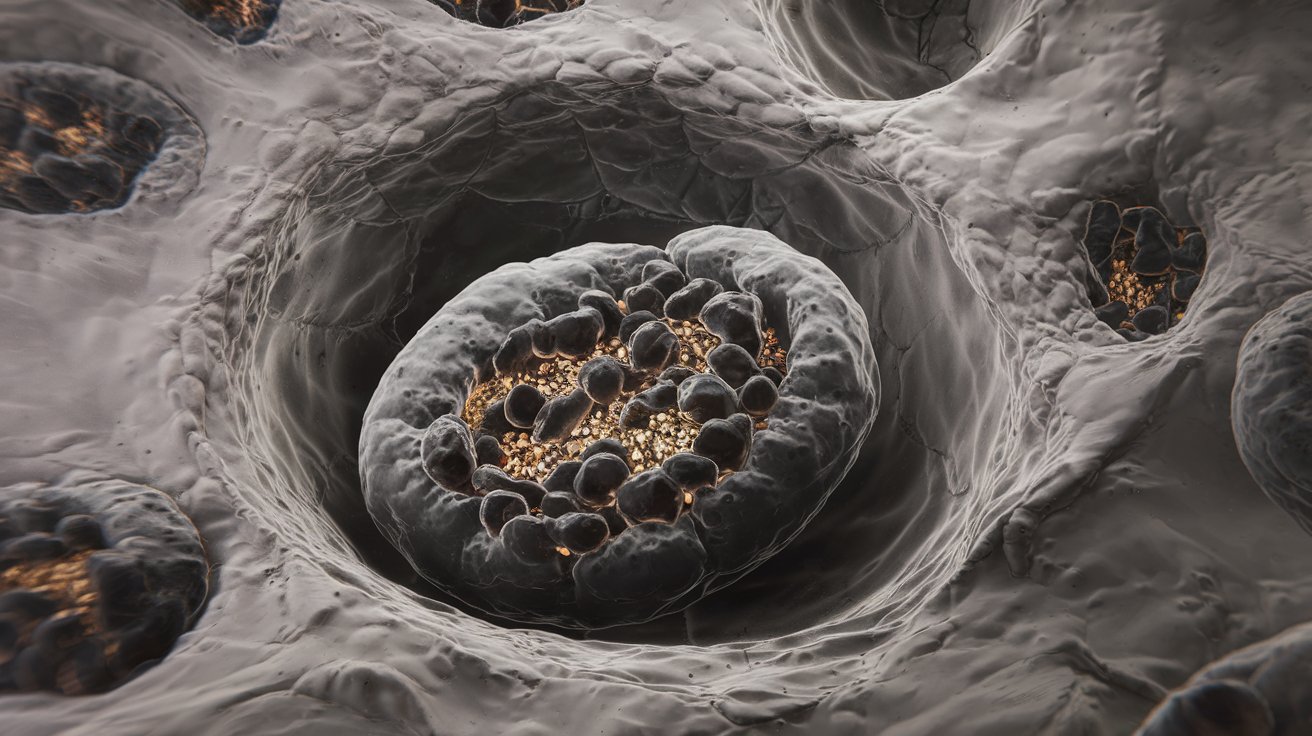
Complex 3 Mitochondrial Respiratory Chain Deficiency is a rare genetic disorder affecting the mitochondria, the powerhouses of our cells. This condition disrupts the process of energy production, leading to a variety of symptoms that can range from mild to severe. Symptoms often include muscle weakness, heart problems, and developmental delays. Diagnosis typically involves genetic testing and muscle biopsies. Treatment focuses on managing symptoms, as there is no cure. Understanding this condition is crucial for those affected and their families. Here are 30 essential facts to help you grasp the complexities of this disorder.
Key Takeaways:
- Complex 3 Mitochondrial Respiratory Chain Deficiency is a rare genetic disorder that affects the body in many ways, from muscle weakness to heart problems. Early diagnosis and symptom management are crucial for those affected.
- Understanding the impact of Complex 3 Deficiency on the body can help doctors and patients manage the condition better. Genetic testing, blood tests, and specialized centers play a key role in diagnosing and treating this complex disorder.
What is Complex 3 Mitochondrial Respiratory Chain Deficiency?
Complex 3 Mitochondrial Respiratory Chain Deficiency is a rare genetic disorder affecting the mitochondria, the powerhouse of cells. This condition disrupts the normal function of the mitochondria, leading to various health issues. Here are some intriguing facts about this condition.
-
Complex 3 Deficiency is part of a group of disorders known as mitochondrial diseases.
Mitochondrial diseases result from failures of the mitochondria, which generate energy for the cell. -
The deficiency specifically affects Complex 3 of the mitochondrial respiratory chain.
Complex 3, also known as cytochrome bc1 complex, is crucial for the electron transport chain, a series of reactions that produce ATP, the cell's energy currency. -
Symptoms can vary widely among individuals.
Some people may experience muscle weakness, while others might have neurological problems or organ dysfunction. -
It is often diagnosed in infancy or early childhood.
Symptoms typically appear early in life, although some cases are diagnosed in adulthood. -
Genetic mutations cause Complex 3 Deficiency.
Mutations in genes such as BCS1L and UQCRB can lead to this condition. -
The disorder can be inherited in different ways.
It can be passed down through autosomal recessive inheritance or, less commonly, through mitochondrial inheritance. -
There is no cure for Complex 3 Deficiency.
Treatment focuses on managing symptoms and improving quality of life. -
Patients may require a multidisciplinary care team.
This team might include neurologists, cardiologists, and metabolic specialists. -
Exercise intolerance is a common symptom.
Patients often experience fatigue and muscle pain during physical activity. -
Some individuals may develop cardiomyopathy.
This condition affects the heart muscle, making it harder for the heart to pump blood.
How Does Complex 3 Deficiency Affect the Body?
Understanding how this deficiency impacts the body can help in managing the condition better. Here are some specific effects.
-
It can lead to lactic acidosis.
This buildup of lactic acid in the body can cause muscle pain, weakness, and rapid breathing. -
Neurological symptoms are common.
These can include seizures, developmental delays, and ataxia (lack of muscle coordination). -
Liver dysfunction may occur.
Some patients experience liver enlargement or liver failure. -
Hearing loss can be a symptom.
Sensorineural hearing loss is reported in some cases. -
Vision problems might develop.
These can range from mild vision impairment to severe blindness. -
Growth retardation is possible.
Children with this condition may grow more slowly than their peers. -
Gastrointestinal issues are frequent.
Symptoms like vomiting, diarrhea, and feeding difficulties are common. -
Respiratory problems can arise.
Some patients may have difficulty breathing or develop respiratory infections. -
Kidney dysfunction is another potential issue.
This can lead to problems like proteinuria (protein in the urine) or renal failure. -
Endocrine abnormalities may be present.
These can include diabetes or thyroid dysfunction.
Diagnosing Complex 3 Mitochondrial Respiratory Chain Deficiency
Early and accurate diagnosis is crucial for managing this condition. Here are some key points about the diagnostic process.
-
Genetic testing is a primary diagnostic tool.
Identifying mutations in specific genes can confirm the diagnosis. -
Muscle biopsies can provide valuable information.
These biopsies can reveal abnormalities in mitochondrial function. -
Blood tests are often used.
Elevated levels of lactate and other metabolites can indicate mitochondrial dysfunction. -
Imaging studies may be helpful.
MRI and CT scans can detect brain abnormalities associated with the condition. -
Electrocardiograms (ECGs) monitor heart function.
These tests can identify heart problems like cardiomyopathy. -
Hearing and vision tests are important.
Regular screenings can detect early signs of sensory impairment. -
Developmental assessments track progress.
These evaluations help monitor cognitive and motor development in children. -
Family history is considered.
A detailed family history can provide clues about the inheritance pattern. -
Metabolic tests assess energy production.
These tests measure how well the mitochondria produce ATP. -
Specialized centers offer comprehensive evaluations.
These centers have the expertise and equipment to diagnose and manage mitochondrial diseases effectively.
Final Thoughts on Complex 3 Mitochondrial Respiratory Chain Deficiency
Complex 3 mitochondrial respiratory chain deficiency is a rare but significant condition. It affects energy production in cells, leading to various symptoms like muscle weakness, heart problems, and developmental delays. Early diagnosis and treatment can improve quality of life. Genetic testing plays a crucial role in identifying the condition. While there's no cure, supportive therapies and lifestyle changes can help manage symptoms. Research is ongoing to find better treatments and understand the condition more deeply. Awareness and education about this deficiency are essential for early intervention and support. If you or someone you know shows symptoms, consult a healthcare professional. Understanding and addressing this condition can make a big difference in the lives of those affected. Stay informed, seek help, and support research efforts to combat this challenging health issue.
Frequently Asked Questions
Was this page helpful?
Our commitment to delivering trustworthy and engaging content is at the heart of what we do. Each fact on our site is contributed by real users like you, bringing a wealth of diverse insights and information. To ensure the highest standards of accuracy and reliability, our dedicated editors meticulously review each submission. This process guarantees that the facts we share are not only fascinating but also credible. Trust in our commitment to quality and authenticity as you explore and learn with us.


